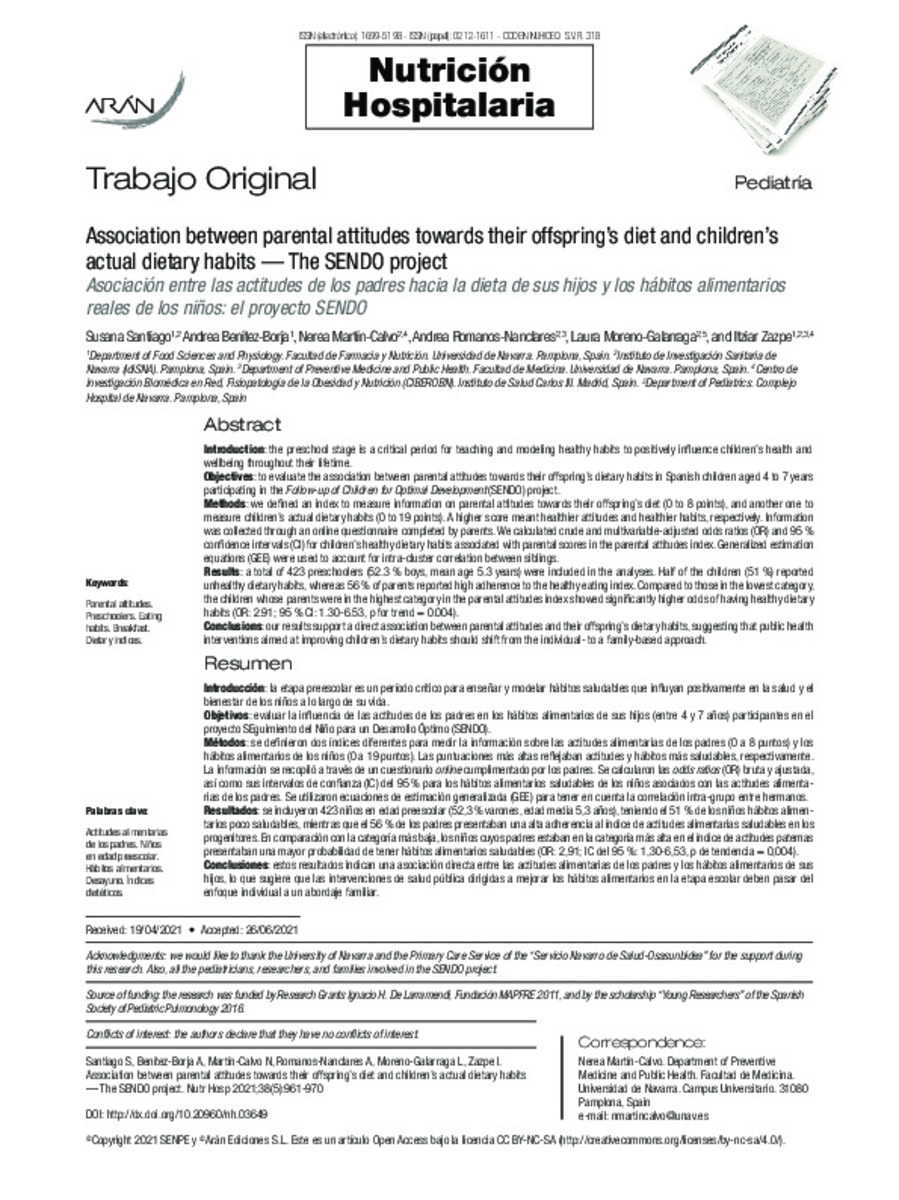Association between parental attitudes towards their offspring's diet and children's actual dietary habits - The SENDO project
Keywords:
Parental attitudes
Preschoolers
Eating habits
Breakfast
Dietary indices
Note:
Este es un artículo Open Access bajo la licencia CC BY-NC-SA
Citation:
Santiago, S. (Susana); Benítez-Borja, A (Andrea); Martin-Calvo, N. (Nerea); et al. "Association between parental attitudes towards their offspring's diet and children's actual dietary habits - The SENDO project". Nutrición Hospitalaria. 38 (5), 2021, 961 - 970
Statistics and impact
0 citas en

0 citas en

Items in Dadun are protected by copyright, with all rights reserved, unless otherwise indicated.








